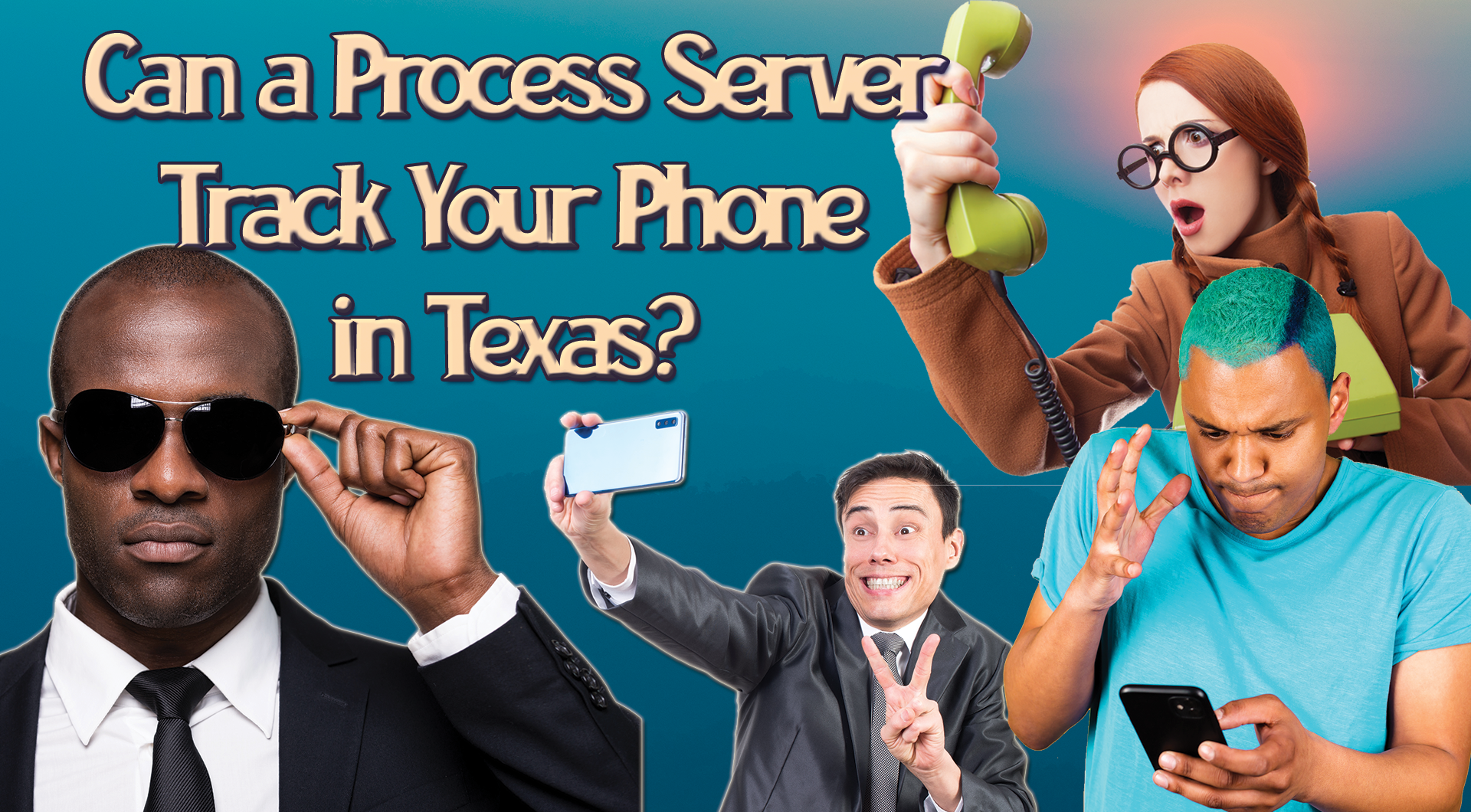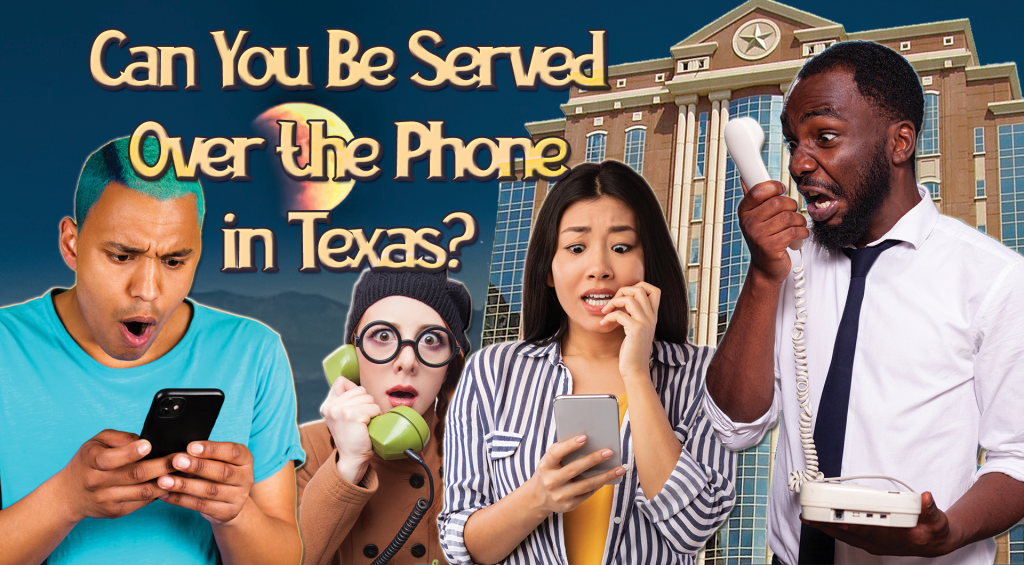Do Process Servers Call Before They Serve You? [Full Breakdown + Insider Info]
If you’re asking yourself questions like “Do process servers call before they serve you?” or even “Why would a process server call me?”, you’re not alone. Many people panic when they receive a strange phone call and wonder, “A process server called me—what now?”
Let’s break down everything you need to know—from what process servers are allowed to do, to whether or not they can call or track you, and how to recognize if you’re being targeted for legal service. We’ve even included a helpful spreadsheet-style table to compare their communication methods.
First Things First: What Does a Process Server Do?
A process server is someone authorized to deliver legal documents such as:
-
Summons and complaints
-
Divorce papers
-
Small claims documents
-
Court orders
The process server’s primary job is to ensure you’re officially notified of a legal matter, in accordance with your constitutional right to due process.
Do Process Servers Call Before They Serve You?
Sometimes They Do—But It Depends on the Strategy
There’s no law that says a process server must call you before delivering papers. However, some process servers DO call, especially if:
-
They’ve had trouble finding you in person
-
You live in a gated community
-
Your workplace is hard to access
-
They’re trying to coordinate a time that works
So if you’re wondering, “Can a process server call me?”—the answer is yes. But they don’t always do it. Some process servers rely on the element of surprise, especially if they think you might be evasive.
Real-World Example: Process Server Called Me
Imagine this scenario: You get a call from an unknown number, and the person says they have “documents” for you. They might sound neutral, vague, or even polite. You hang up wondering, “Did a process server just call me?” You may have just been contacted by someone trying to serve you legal paperwork.
Note: Process servers are not legally required to identify themselves over the phone. This means you might not get a clear answer unless they show up in person.

Can Process Servers Track My Phone?
This is a hot-button question. Let’s clarify it.
❌ NO—They Can’t Legally Track Your Phone
Process servers cannot legally track your cell phone GPS like law enforcement might. However, they may use:
-
Social media check-ins
-
Public records databases
-
Voter registration data
-
Utility information
-
Family or neighbor inquiries
So if you’re asking, “Can process servers track my phone?” — not directly. But they can track you using every publicly available digital breadcrumb you leave behind.
Spreadsheet: Process Server Communication Methods
To make things clearer, here’s a handy chart showing how process servers might attempt to reach you and what’s legal, shady, or red-flag worthy:
| Method | Legal? | Common? | Details |
|---|---|---|---|
| Phone Call | ✅ Yes | 🔁 Sometimes | Can confirm availability or location, often vague |
| In-Person Visit | ✅ Yes | ✅ Very | Most traditional and reliable method |
| Social Media | ✅ Yes | 🔁 Rare | Used if allowed by the court or to gather intel |
| ⚠️ Sometimes | 🔁 Rare | Only legal under court order or by agreement | |
| Mail (Certified) | ✅ Yes | 🔁 Sometimes | Can be used in some civil cases, requires proof of delivery |
| GPS Phone Tracking | ❌ Illegal | ❌ Never | Not allowed without a warrant or legal order |
| Text Message | ⚠️ Sometimes | 🔁 Rare | Some process servers send messages, but may not serve legally via text |
| Neighbors/Workplace Inquiry | ✅ Yes | 🔁 Often | Servers may ask others to confirm your presence or address |
| Publication (Newspaper) | ✅ Yes | ❌ Rare | Last resort when all other methods fail—requires court permission |
Process Server Called Me—Was It a Scam?
Unfortunately, scam artists sometimes pose as process servers. Here’s how to spot a fake:
🚩 Warning Signs of a Scam Call:
-
They demand money over the phone
-
They threaten arrest or jail time
-
They claim to be from a fake-sounding agency
-
They pressure you into giving private information like your SSN
-
They won’t give you a callback number or a way to verify their identity
Key Takeaways: What You Should Remember
Let’s recap the essentials:
-
Do process servers call? ➝ Sometimes yes, sometimes no.
-
Can a process server call me? ➝ Yes. It’s legal.
-
A process server called me—am I in trouble? ➝ Not necessarily. It just means someone is trying to notify you of a legal issue.
-
Can process servers track my phone? ➝ No, not directly or legally.
If you’re contacted by someone claiming to be a process server, stay calm and verify their identity. Don’t jump to conclusions—but don’t ignore it either.

Final Words: Be Smart, Be Informed
Whether you’re going through a lawsuit, a divorce, or a civil dispute, knowing your rights and how process servers operate puts you one step ahead. Don’t let fear or confusion take over.
If you’re ever unsure a reach out to a trusted process serving agency in your area—like Houston Process Servers, LLC—for professional and honest insight.
🛡️ Being legally served doesn’t mean you’re guilty. It simply means you’re being formally notified. Knowledge is power. Use it wisely
